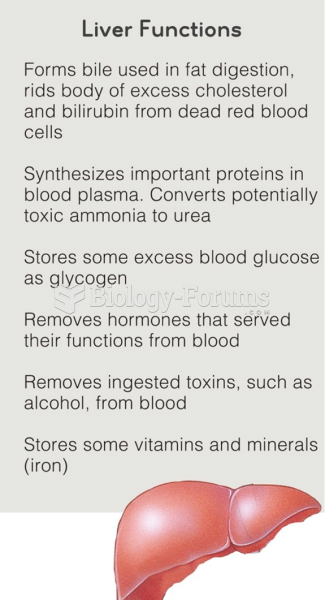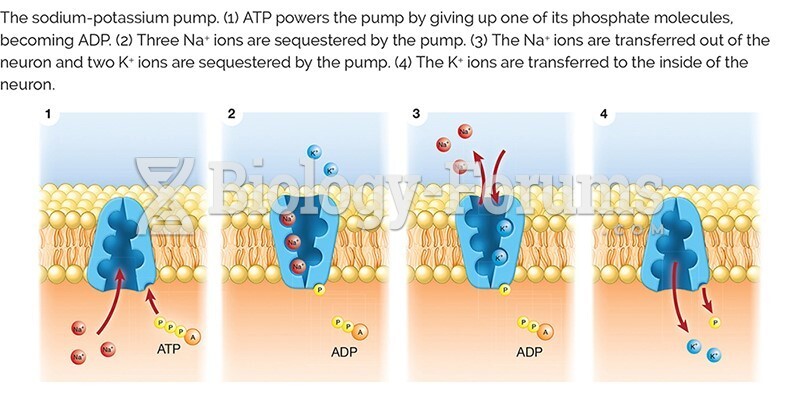|
|
|
After 5 years of being diagnosed with rheumatoid arthritis, one every three patients will no longer be able to work.
Aspirin is the most widely used drug in the world. It has even been recognized as such by the Guinness Book of World Records.
The Romans did not use numerals to indicate fractions but instead used words to indicate parts of a whole.
Looking at the sun may not only cause headache and distort your vision temporarily, but it can also cause permanent eye damage. Any exposure to sunlight adds to the cumulative effects of ultraviolet (UV) radiation on your eyes. UV exposure has been linked to eye disorders such as macular degeneration, solar retinitis, and corneal dystrophies.
There are approximately 3 million unintended pregnancies in the United States each year.







